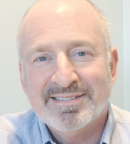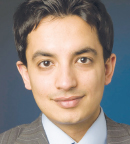
William M. Sikov, MD

Sunil Verma, MD
The ASCO Post obtained comments about the Persephone trial results from two breast cancer experts. William M. Sikov, MD, is Associate Director of Clinical Research at the Program in Women’s Oncology at Women and Infants Hospital of Rhode Island and Associate Professor of Medicine and of Obstetrics and Gynecology at the Warren Alpert Medical School of Brown University, Providence, Rhode Island; and Sunil Verma, MD, is Medical Director of the Tom Baker Cancer Center and Professor and Head of Oncology at the Cumming School of Medicine, University of Calgary, Canada.
“While we await presentation of the results of the Persephone trial, particularly the subgroup analysis, to see whether there are patients in whom the benefits of the longer duration of trastuzumab [Herceptin] may outweigh its risks and costs, the 6-month course should become the new standard of care for the vast majority of HER2-positive patients, allowing them to avoid the increased risk of cardiac toxicity, inconvenience, and expense associated with the 12-month regimen,” Dr. Sikov maintained.
Such subgroups may be defined, for instance, by tumor size, nodal and hormone receptor status, chemotherapy regimen, and treatment timing (ie, administration of trastuzumab concurrently with or sequentially after chemotherapy), he suggested.
“The results of Persephone are not surprising, given there is no biologic rationale for continuing trastuzumab for a full year, though this [schedule] appeared to be etched in stone once it was employed in the randomized adjuvant trials,” Dr. Sikov pointed out. “Fortunately, the investigators continued to assess the optimal duration of adjuvant trastuzumab.”
HERA demonstrated that 2 years of adjuvant trastuzumab is no more effective than 1 year.1 PHARE demonstrated that 6 months is noninferior to 12 months, at least in patients with small (≤ 2 cm) tumors and those who receive trastuzumab concurrently with chemotherapy, as it is typically administered in the United States.2 SOLD demonstrated noninferiority for distant disease–free survival and overall survival with 9 weeks of trastuzumab compared to 1 year.3 In the latter two studies, the shorter duration of trastuzumab was, as in Persephone, associated with clinically and statistically significant lower rates of cardiac toxicity, he pointed out.
Dr. Sikov suggested that a future study might assess the noninferiority of trastuzumab administered solely concurrent with a 12- to 18-week course of adjuvant chemotherapy, compared to the 6-month regimen, perhaps focused on lower-risk (stage I–IIA) patients.
De-escalation Trend
According to Dr. Verma, Persephone adds to the growing evidence in support of de-escalation therapy. He said the treatment of HER2-positive breast cancer requires an integration of evidence that helps oncologists individualize treatments. The aims are to optimize efficacy, ensure long-term safety, take cost into account, and individuate the patient’s risk of recurrence. New approaches are now focused on de-escalating therapy for certain patients while escalating treatment for high-risk patients, such as by including newer anti-HER2 agents in addition to standard adjuvant trastuzumab, he said.
“Although a number of trials have focused on shorter durations of trastuzumab, including evaluating 9 weeks and 6 months of trastuzumab, they have not shown to be noninferior to the standard 1-year duration of adjuvant trastuzumab. Persephone is the first randomized trial to conclude that 6 months of adjuvant trastuzumab is noninferior to 1 year of trastuzumab,” Dr. Verma said.
“We have to evaluate this study in great detail, as this can be practice-changing for patients with HER2-positive early-stage breast cancer. It also has a significant impact on the related cost of the drug and health-care resources as well as cardiac toxicity associated with trastuzumab beyond 6 months,” he continued.
“Finally, we have to evaluate how this study’s conclusion, conduct, and patient inclusion were different from those of the previous trials reported in this setting that reached different results and conclusions,” Dr. Verma cautioned. ■
DISCLOSURE: Dr. Sikov reported no conflicts of interest. Dr. Verma has advisory board/consultancy relationships with Amgen, AstraZeneca, Pfizer, Novartis, Roche, and Samsung Bioepis.
REFERENCES
1. Piccart-Gebhart MJ, Procter M, Leyland-Jones B, et al: Trastuzumab after adjuvant chemotherapy in HER2-positive breast cancer. N Engl J Med 353:1659-1672, 2005.
2. Pivot X, Romieu G, Debled M, et al: 6 months versus 12 months of adjuvant trastuzumab for patients with HER2-positive early breast cancer (PHARE): A randomized phase 3 trial. Lancet Oncol 14:741-748, 2013.
3. Joensuu H, Fraser J, Wildiers H, et al: A randomized phase III study of adjuvant trastuzumab for a duration of 9 weeks versus 1 year, combined with adjuvant taxane-anthracycline chemotherapy, for early HER2-positive breast cancer. 2017 San Antonio Breast Cancer Symposium. Abstract GS3-04. Presented December 7, 2017.

